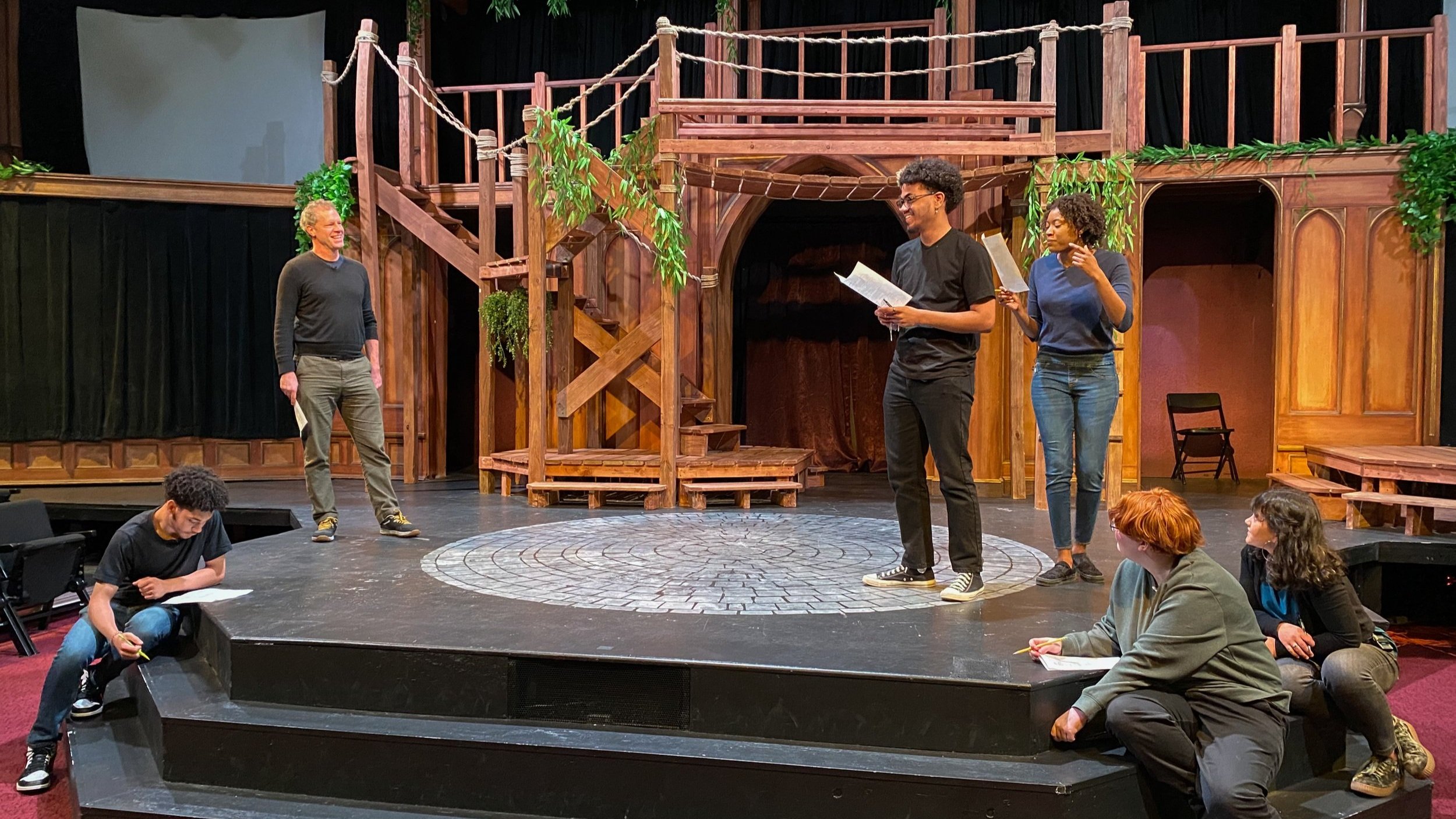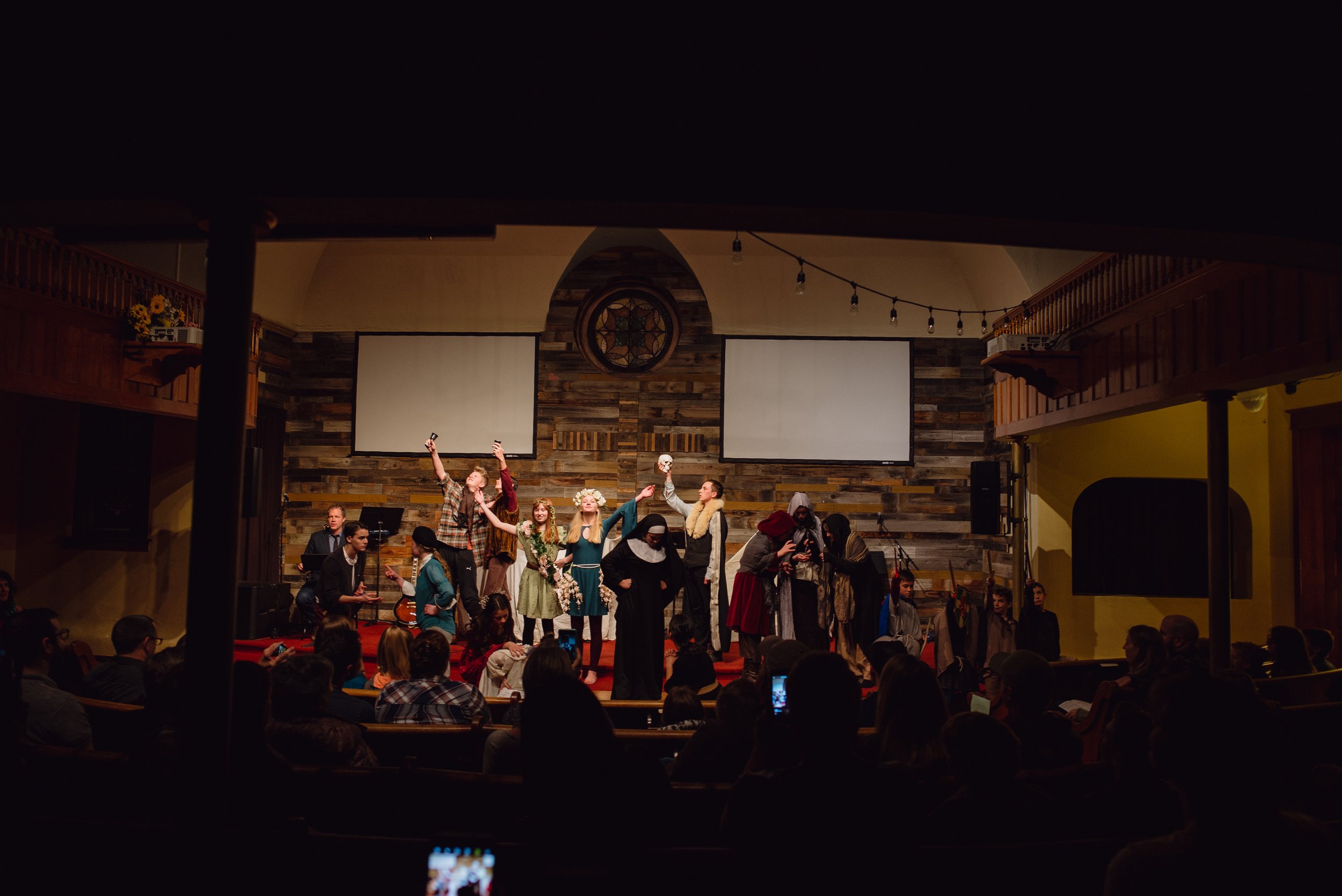
What will your students remember
beyond “to be or not to be”?
That is the question.
The Process.
Step 1 —
Customized Plan
Tim meets with teachers and/or parents to formulate a tailor-made plan for the students.
Step 2 —
Scene
Blocking
Students work remotely with Tim to block scenes.
Step 3 —
Student
Rehearsals
Tim coaches teacher/parents as they guide the students through 5-6 weeks of rehearsal.
Step 4 —
Two-Day
Intensive
After the 5-6 weeks, Tim travels to the participating school for a two-day intensive rehearsal with the students.
Step 5 —
Culminating
Performance
The students will perform for family and friends in a grand finale of their work, directed and narrated by Tim.

Tim works with a variety of student groups—public, private, homeschool, college, community theatre—and ensures the process is approachable and affordable for all.
The Investment.
The Backstory.
Tim A. McIntosh
Tim McIntosh is an actor, director, and podcaster. He taught classics for 10 years at Gutenberg College. He is the host of The Play’s the Thing, a podcast for all things Shakespeare. He is Creative Director for Westfall Gold. He and his wife live in Atlanta, GA.
A Note from Tim:
I was like so many teachers and students. I had to respect Shakespeare. But, honestly, found him kinda boring. It wasn’t until I had to act a scene (Claudio from Measure for Measure) that I fell in love with Shakespeare. Acting him? It was so different! The words began to leap off the page.
It occurred to me: We’re teaching Shakespeare’s plays all wrong. We’re teaching as if he wrote novels. He didn’t write novels — he wrote plays! So let’s teach Hamlet and Much Ado About Nothing and Julius Caesar for what they are — embodied, communal performances.






